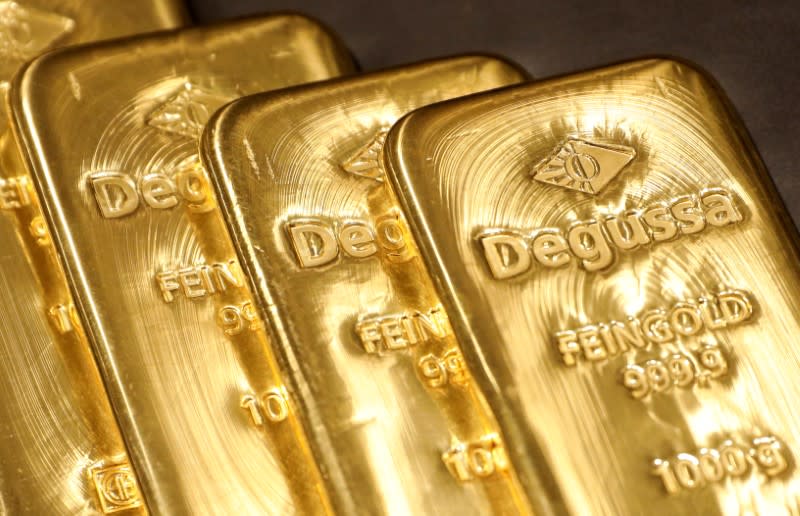Gold demand fell to its lowest in 11 years in the third quarter - WGC
By Peter Hobson
LONDON (Reuters) - Global demand for gold in the third quarter of 2020 was the lowest in 11 years, as a rush by investors to stockpile bullion slowed and central banks sold metal for the first time in a decade, the World Gold Council (WGC) said on Thursday.
The coronavirus pandemic collapsed jewellery sales, usually the biggest source of gold demand, but this has been offset by investors looking for an asset they see as a safe store of value.
The jewellery market recovered slightly in the third quarter, including in China and India, the largest, but not enough to compensate for the slower pace of stockpiling by investors in exchange traded funds (ETFs), the WGC said.
Global gold demand was 892.3 tonnes over the July-September quarter, down 19% from the third quarter of 2019 and the lowest since Q3 2009, during the financial crisis, according to the WGC.
Demand in the first nine months of the year, at 2,972.1 tonnes, was 10% lower than in 2019 and the least since 2009.
(GRAPHIC: Global gold demand - https://fingfx.thomsonreuters.com/gfx/ce/qzjpqamobpx/Q3%20GOLD%20DEMAND%20TRENDS.JPG)
Investor demand pushed gold prices <XAU=> from around $1,500 an ounce in January to a record high of $2,072.50 in August, putting off price-sensitive jewellery buyers.
But reduced purchases since then by ETFs, which store gold for investors, have seen prices fall to around $1,900.
While ETFs slowed their growth, purchases of gold bars and coins increased in the third quarter as rising demand in China, India and Turkey added to high sales in Europe and the United States.
Jewellery demand in China and India is likely to rise in the final quarter and central banks should again be buyers, said the WGC's Krishan Gopaul.
But ongoing economic uncertainty, low interest rates and government stimulus mean investors will remain the driving force of the market, he said.
"The environment we're in is unlikely to change significantly any time soon," he said.
(Reporting by Peter Hobson; Editing by Kirsten Donovan)



